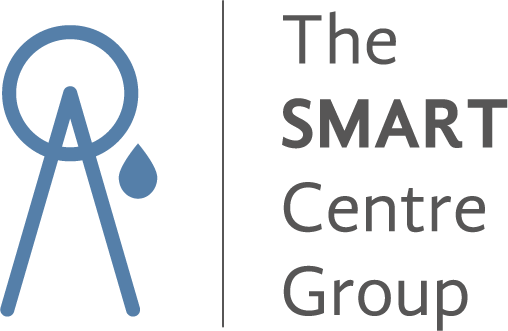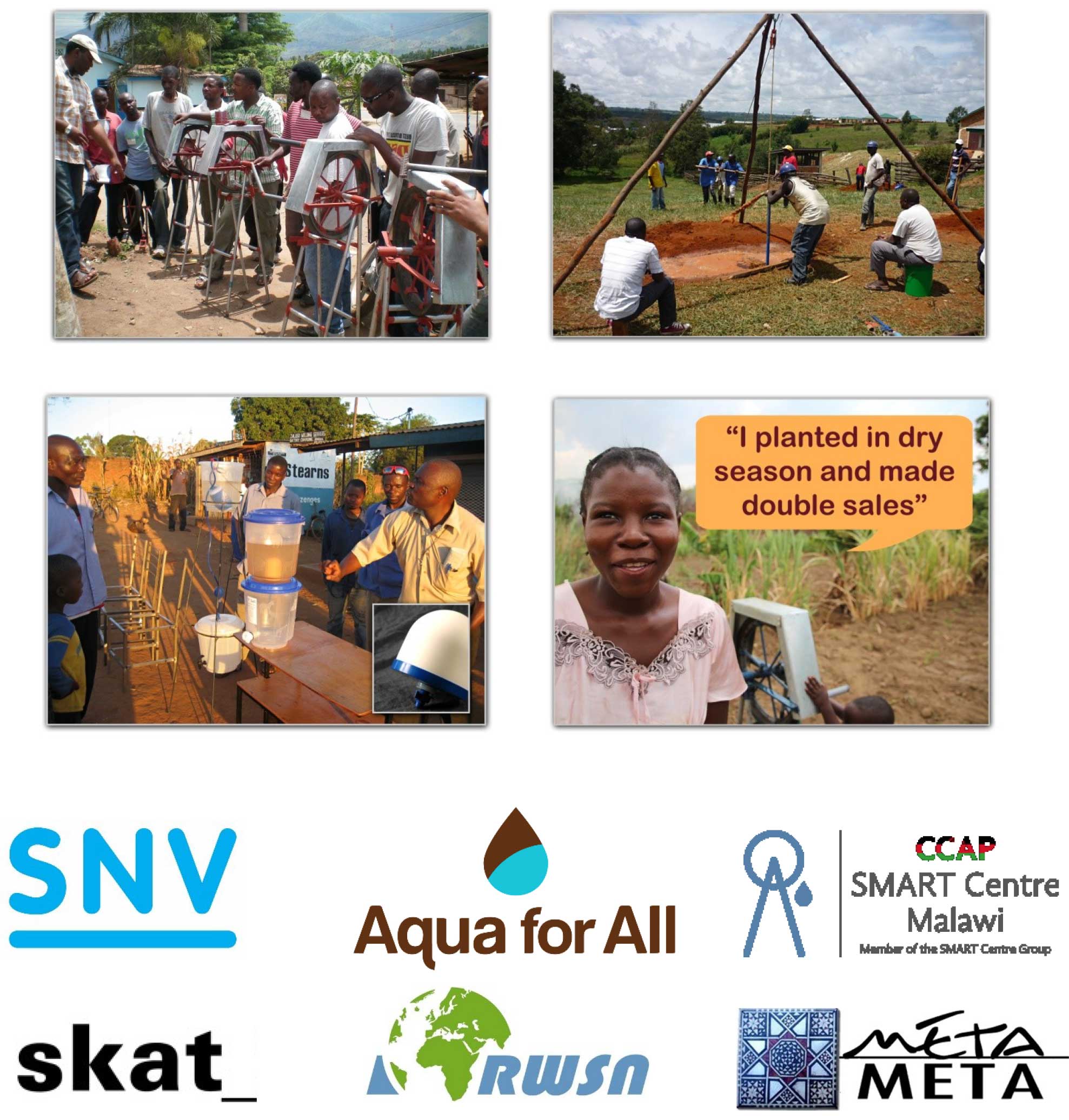International training course
“Market-led SMARTechs for water and agriculture”
19th to 23rd of March 2018 in Mzuzu, Malawi
The SMART Centre SNV are organising an introductory short course to provide policy makers and practitioners in water and agricultural management with a holistic set of knowledge and skills to take water and agricultural initiatives to the next level, to become true agents of change and accelerate reaching several SDGs simultaneously(*).
www.smartcentregroup.com
Introduction
To ensure WASH, food and employment for all, millions of technicians, entrepreneurs, farmers and others need to be trained over the coming decade. Some 35% of rural water facilities in sub-Saharan Africa is non-functional, so business as usual is not an option. The paradigm of communal supply and centralised management needs a drastic shift in order to reach water related SDGs. We are therefore looking for change agents to build this movement of change further. We are a consortium of international organisations and SMART Centres working together for innovation to ensure access to water while at the same time increasing food security and creating employment. The SMART Centre approach entails training and coaching micro and small entrepreneurs in developing countries to produce, maintain and market SMARTechs: Simple, Market-based, Affordable and Repairable Technologies. Examples are SHIPO and Mzuzu manual drilling (up to 40 meters), hand and solar pumps (Sunculture Rainmaker, Sunlight and Sunflower pumps), tube recharge, adjustable drip kits, household water filters, SaTopan latrines, soil additives and more. An innovative movement that works by guiding and strengthening entrepreneurial champions.
Objectives
This course will enable participants to become facilitators of change by providing them with knowledge and skills to guide the implementation of innovative water and agriculture initiatives through locally produced technologies, while simultaneously improving food security and employment. The course will provide insight into:
- Fifteen innovative water and agricultural technologies and how to produce, maintain and market them
- Examples of household water supply (Self-supply) for food security, productive use and economic development
- What it concretely entails to train and guide promising entrepreneurs and to make them financially sustainable.
- A proven approach to enable upscaling of Self-supply.
- A tried and tested approach to establish a autonomous technology innovation centre, like a SMART Centre.
Course delivery
The course program is diverse and entails a mix of interactive lectures, discussions, a webinar, group work and field examples. Field visits will take you to intervention sites of the CCAP SMART Centre in Malawi and allow interaction with entrepreneurs producing, and households using SMARTechs. Professional resources persons and trainers from different backgrounds and institutions will expose participants to required knowledge and skills. The course schedule is divided into the following themes:
- The SMART Centre approach
- SMARTechs for agriculture and prod. use
- SMARTechs for water and sanitation
- Business development, marketing support and coaching
Policy makers that complete this short course are eligible for follow-up business development oriented training of trainers courses offered at various SMART Centres. Practitioners may opt for specific follow-up SMARTech courses.
Course registration
The course will take place from the 19th to the 23rd of March 2018 in Mzuzu, Malawi. The course will be given in English and where needed discussions with households and entrepreneurs will be translated into English. The course fee is 800 euro, including lunches, coffee/tea and local transport. There is a possibility for a reduced fee for participants from Malawi. Applicants are responsible for their own travel and accommodation. Support in visa application will be provided by the organisers.
For information: www.smartcentregroup.com. For registration please send an email to info@smartcentremalawi.com, enclosing a CV as well as a short motivation letter (max. 400 words). Applications should preferably be received by the 27th of February to ensure ample visa processing time. The number of participants is limited to ensure training quality, so subscribe now!


